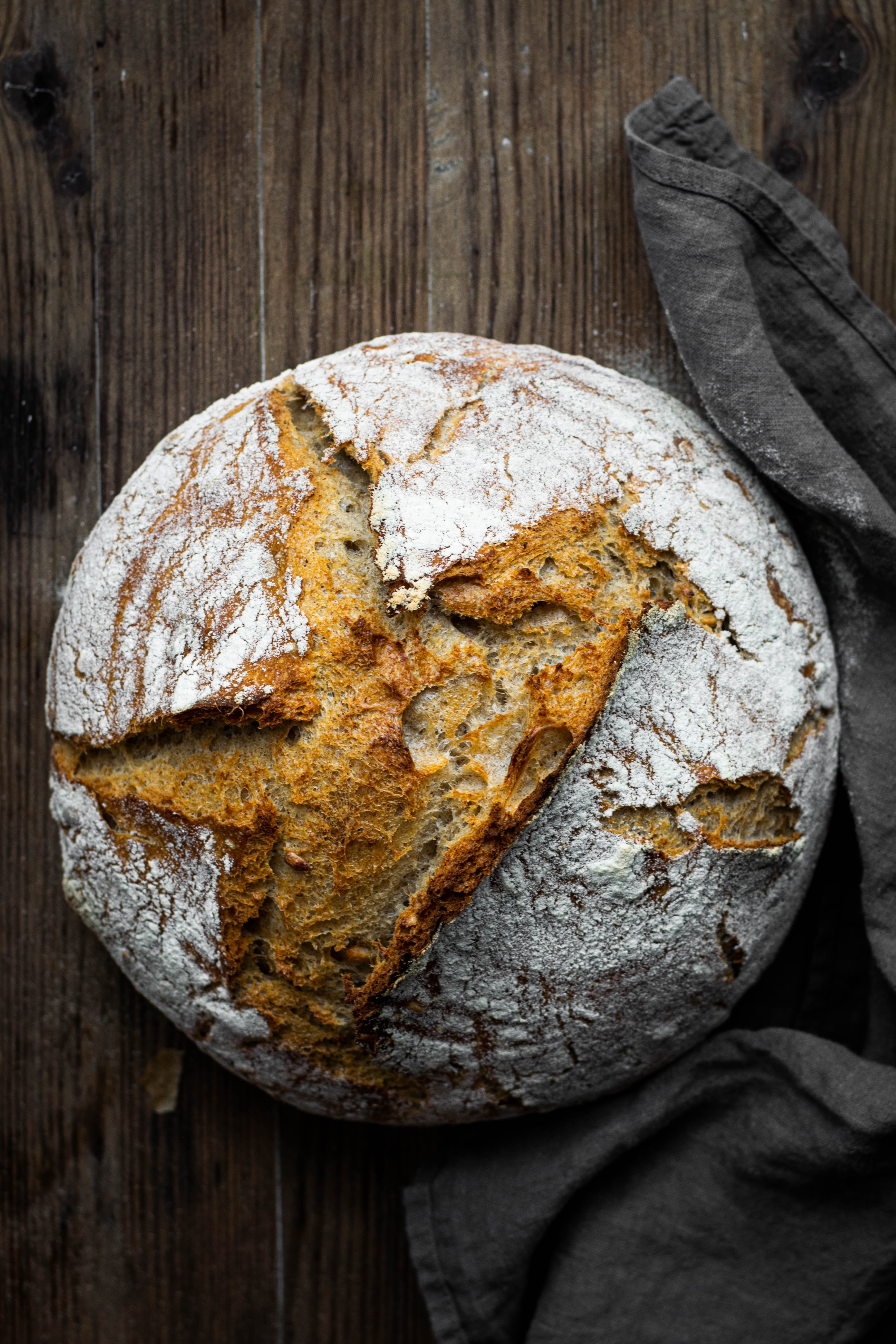“Manna Rain”: The Lessons of Limitations
Jane Chin
Ever heard of “finite” math? It's called finite because it only involves a finite number of variables in its application. In other words, there are limitations to what can be used in this type of math. Much like finite math, we also experience a lot of “limitations” in our spiritual walk. Over the past 2.5 years of the pandemic, this concept of limitations has been given a stage of greater meaning to our daily lives. What thoughts conjure up in your mind and what emotions do you attach to facing the immediate reality of limitations? Perhaps frustration? A curtailed freedom? Anxiety, fear, or high levels of stress that have been equated with the mandates of restrictions, sudden lockdowns, shortage of supplies, or shuttered stores?
I love that God always has a flip side—a faith side—to every aspect of our human experience. These lessons, if we fully embrace them, can walk us through these less-traveled valleys to emerge on the other side with an inner transformation of greater wisdom and spiritual maturity, and a deeper understanding of He who walks with us.

“Then the Lord said to Moses, “I will rain down bread from heaven for you...The people of Israel called the bread ‘manna’.” Exodus 16: 4, 31
This is a journey through the valley of limitations and essential lessons taken from the Israelites’ experience in the wilderness with “manna rain.” God’s people have been rescued from their life of slavery in Egypt and are on their not-so-straightforward path to the Promised Land. Being slaves for most of their lives, they had only ever known limitations as a negative, diminishing, and harsh experience. However, God would use this part of their journey to redefine “limitations” and develop their trust in a new allegiance to an omnipotent God. This is the same calling for us today as we internally resist and struggle with the concept of “limitations.” How can limitations possibly be good or beneficial for us? How can constraints develop into healthy character growth?
Limitations Cultivate Gratitude
As women, sisters, wives, and mothers, limitations can cause us a great deal of anxiety and insecurities. Whether limitations comprise simply of food/supplies or of complex life circumstances (e.g. health, unforeseen crises, etc.), gratitude is probably the furthest removed from our thoughts. The Israelites, many of whom were women and mothers caring for their families in the middle of the wilderness, found themselves in need of food, drink, and basic necessities. With limited options and seemingly non-existent solutions for such a huge population with unmet needs, I find myself asking how would I react. Surely, I would be in a deep panic, coupled with anxiety and bubbling anger… And gratitude would certainly be far from my heart.
We see God’s wisdom in the transformation of this potentially volatile situation into a fertile ground that can cultivate gratitude. In Exodus 16: 11-12, the bible says God’s ultimate purpose for the manna is that “they will know that I am the Lord your God.” Allowing them to feel hungry and in need produced a natural response of grumbling and complaining in the Israelites. But a spirit of bitterness and resentment was already deeply rooted in them. Through those years of slavery, they perhaps felt God owed them a better life outside of Egypt—a life that they should be entitled to demand of Him. In fact, shouldn’t God feel responsible or obligated to more than compensate for their decades of suffering?
What’s more, God answered their grumbling with “limitations.” He did NOT give them manna to satisfy their longing for the “pots of meat” they incorrectly remembered having in Egypt. Nor was manna given to them so they could be wrapped up in the experiences of pleasure or varieties of taste. God provided plain and tasteless manna in daily, limited amounts. His purpose was two-fold: to keep them from literally starving and giving them the security that their basic needs would be met, and to worship Him ... not His gifts. For the Israelites, limitations would instill their trust and acknowledgment that God would sustain their existence daily. With their sole focus on God, they could then worship and delight in Him, NOT in his provisions.
In this material world, it is so easy to slip into being fully occupied with things and neglect the greater importance of relationships. Is our satisfaction derived more from our relationships or from things? How is God using “manna rain” in our lives to fully develop a spirit of gratitude towards Him and not just His provisions? When we come face to face with limitations and our focus is on God being the one who sustains us as He promises, then we can develop and root our hearts in gratitude regardless of the outward circumstances.

Limitations Test Obedience
As a mother and grandmother, teaching and expecting biblical obedience is an easy feat with years of experience. Filled with convictions, scriptures, and practicals, we can feel pretty good about passing down this essential conviction and characteristic of obedience. But in actuality, easier said (and taught) than done! We need to take a hard, honest look at our own response and example of obedience to God first. Limitations in this scenario were a test for the heart and willingness to hear and adhere to God’s final Word. Obedience, unfiltered—nothing more or less, added or dropped.
The manna, as limited as it was, came with specific instructions:
“I will test them and see whether they will follow my instructions.” Exodus 16: 4-5
Manna came with a prescription. God didn’t just leave them to do whatever they wanted with His daily provision. He gave them clear boundaries and willed them to work within set limitations. The Israelites were told exactly how, when, and how much manna they were to gather each day. Manna was more than food; it was a test of their obedience. In other words, their obedience was to verify their love, listening, and respect for Him as Lord.
Limitations, coupled with the call to obedience, can be that vehicle that gives us just what we need when we need it. Through their obedience, the Israelites would be sufficiently provided for. This passage of scripture specifies instructions 11 times for the people to go out and gather manna. And each time, it required their trust and full, unequivocal obedience. It is exactly the same for us today.
As disciples, when we are faced with challenging circumstances or unexpected life limitations, are we able to have a submissive spirit to walk the way of obedience to the scriptures? Or do we just routinely read the bible and then stop short of living it out? How easy is it to just teach and demand it of our children and others, but compromise on and excuse our own lack of obedience? Limitations open up a channel for self-awareness and are the “litmus” (evidence) of our willing obedience. Our obedience invites God fully into the equation of limitations. Is there evidence of my personal obedience as I face limitations?
Limitations Increase Humility
How can a simple, unassuming wafer possibly be so humbling? In Exodus 16: 13-15, when the Israelites saw the “manna,” they did not know what it was and said to each other, “What is it?” And Moses said to them, “It is the bread the Lord has given you to eat.” God brought the Israelites out of Egypt, a familiar life, and into a wilderness, a foreign unknown. It would have been humbling to not even know or name what God sent to feed them. Manna would be a symbolic and significant reminder that our survival comes from God alone—not anyone else and certainly not ourselves. As the Israelites went out to gather manna each morning, that is the ONLY action they took. They did not have any part in producing the manna itself, nor was it able to be earned or bought. It was solely dependent on God’s act of compassionate provision.
God gave them another command for gathering manna in v. 19. They were forbidden to have leftovers of manna. Why? What’s wrong with taking the initiative and gathering manna for an extra two days? Or two weeks, even? Perhaps, ever so subtlety, we want God to provide more, so we can depend on Him less. We regard the most optimal life to be one of control, independence, and unhindered decision-making, which all feed into our pride.
In our persistent pursuit of life successes, achievements, and underlying self-glorification, we unconsciously desire to get to a place where we don’t need God to be so intricately involved in our lives. We want some personal space so we can have an equal footing with God for outcomes and control concerning our lives. We become convinced that it is an easier life when we don’t need a full faith, need to pray consistently, or to follow the Scriptures wholeheartedly.
We prefer a comfortable level of power and self-sufficiency in deference to a confining humility. We are easily tempted into feeding our own egos, emotions, and opinions. Can we ever have too much humility in our lives? Most of our life’s difficulties and crises are not born out of our limitations, but by our lack of humility. In thinking we absolutely know what is best for our lives, we mistake spiritual maturity for self-reliance. By giving the Israelites just enough manna each day, it acclimated their hearts and attitudes to stay within the realm of humility. Likewise, if God provided too much too soon, we would most likely lose our spiritual hunger, and these valuable reminders for a humble spirit would be lost.
Limitations Create Contentment
You would suppose that in this world of having everything and anything right at our fingertips that we would be the most content generation to have ever lived. How ironic it is that we see such greed and excessive debauchery as a prevalent part of this abundance in life. Such is the dichotomy of limitations. “Enough” has evolved into “never enough.” In Exodus 16: 16-20, God commanded the people to “gather only as much as they need.” However, some paid no attention and kept the extra manna until morning. And, true to God’s warning, the extra manna was full of maggots.
This maggot-filled manna gives us a stark visual of what greed looks like. Greed is not just about money; it takes on many subtle forms. When we work till we are burnt out in the name of success, or when we use people to get ahead. Perhaps we minimize the telling of little white lies or apply manipulation and deception to get what we desire. More power, more things. Just more, more, more…
Greed controlled the Israelites in their anxious, wilderness life. So much so that, even in their limitations, discontentment was their natural inclination and response. But God used those limitations to teach them the value of contentment. God let the leftover manna rot and stink to illustrate that greed and a lack of satisfaction in our hearts produce the same result, both within and outside our lives. These life limitations, manna or otherwise, give us a reality check that all earthly things, no matter how good or enjoyable they are, are fleeting and do not last.
We are also not able to hoard them in our grasp to deliver the desired contentment. Resentment, envy, and jealous comparisons flare up when we become obsessed with things and attach too much significance and security to them. God wants us to be content and simply enjoy the manna He has provided and gifted us with. Always just enough, just in time, and just for you.
“... godliness with contentment is great gain.” 1 Timothy 6: 6
So where does your heart sit on the scale of contentment? How is God creating a heart of contentment in you despite life’s limitations?
Which spiritual lesson on limitations most convicts your heart and why? How can you practically embrace the “joy of limitations” in your life? As the pandemic continues to upend life, limitations, restrictions, and unknowns have become the new normal. As disciples, women, sisters, wives, or mothers, we can embrace valuable lessons of “manna rain” that will no longer be a disruptive and discouraging force in our lives and homes but rather become a force of faith, healthy growth, and peace.
#lovinglifeslimitations

Jane’s bio
Author’s profile of spiritual highlights:
Baptized in Boston campus ministry July 1982.
Married Steve Chin in August 1987. Three daughters: Asiana, Chyna & Xiana. Baptized in
Taipei, Hong Kong & Boston respectively.
Both became interns in Boston in 1985/1986.
Mission team to HK September 1987. Mission team to Taipei in January 1991.
Served in Greater China churches 1987 until present.
Motto: ‘Soli Deo Honor et Gloria’ all honor & glory to God
作者簡介 :
於1982年七月在波士頓校園團契受浸
在1987年八月和覃思源結婚,育有三名女兒Asiana,Chyna 和Xiana,他們分別於台北、香港和
波士頓受洗成為門徒
和丈夫分別於1985年及1986年在波士頓全職侍奉教會
在1987年九月參加香港傳道團
於1991年帶領傳道團到台北建立教會
自1987年至今服侍大中華基督教會
格言 : 將所有榮耀尊貴歸與神


Leave a comment
1 Comments
Jun 26, 2023, 6:43:54 AM
Rosie Alejandro - Jane, can I just say that this is one of the most convicting devotionals I have read! I have a lot pray through. I already see the need for repentance in my own heart for wanting more control lately and relying less on God for His provisions. I thank you so much for speaking the truth sister, I really appreciate this devotional! Your sister-Rosie of the One Miami Church and host of The Intentional Christian Woman podcast.